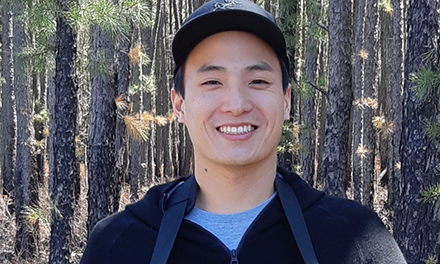USA-based company Treeswift provides an example of how researchers in other parts of the world are embracing the use of robotic tools to help automate forestry, reduce risk for workers and collect highly accurate data more quickly. Sources: FWPA, Timberbiz
Steven Chen, co-founder and CEO of Treeswift and doctoral student in computer and information science at Penn Engineering has developed a fleet of drones equipped with LiDAR sensors, that have the capability to fly over forests, collect images, and use them to create detailed 3-D maps.
These drones can be used to calculate inventory, map forests for preservation, and measure biomass and fuel for the prevention of bushfires. Data collected also has potential to be used by researchers to assess the health of forests and create predictive models that support climate change initiatives.
Traditional forest management practices tend to be manual, time consuming, and carry with them varying degrees of risk. They also have the potential for human error.
These disadvantages all amount to a large effort for the collection of a small amount of data.
In December last year, Mr Chen received a National Science Foundation (NSF) Small Business Innovation Research grant to develop his network of drones or ‘flying robots’. This funding has helped to attract additional scientists and engineers to the initiative.
As part of the project, Treeswift has partnered with various forestry companies to learn about current issues faced by forest managers, and to test and refine the technology.
Through conversations with foresters, Mr Chen discovered the number of young people entering the industry is decreasing.
“So now we have a situation where companies are looking more and more to forest resources to combat climate change, but you don’t have a supply of people who are growing to meet that need,” he said.
“I want to help make each forester do what they do with greater efficiency. These robots will not replace human jobs. Instead, they’re providing new tools to the people who have the insight and the passion to manage our forests.
“We’re not replacing the person. We’re replacing the tape measure.”






